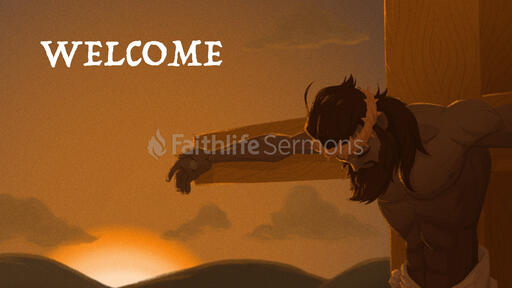The pangs & pains of Advent
I suppose that you are old enough and wise enough to be let into a secret: there are two kinds of time. The first kind of time runs in a straight line. It starts at A and finishes at B. That’s often how we count our lives. Joe Bloggs has reached 65. Ian McKendrick has turned 21; Janice Fishley has had her 100th birthday. Most of our life is managed in linear, straight line time. There are 12 shopping days to Christmas. The next election, God willing, will be in 2 years 6 months from now. When you think about it, this kind of time, linear time, usually focuses on results or outcomes. By 2012 70% of NZs roads will require a toll. We compare the starting and finishing points, often to see if we have more.
The second kind of time is round or circular time. Gardeners know about it, it’s the kind of time that brings changes with the seasons: summer, autumn, winter, spring. This kind of time isn’t result oriented so much as its relational time. Garden time, round time, thinks of warmth, of growth, of hibernation. When we look at time this way we could say I will dig my potatoes for Christmas Day, but you might be more interested that the tomatoes need to be watered and staked, in other words, how your garden is responding to the season.
Round time or circular time is also church time. Every year we reset the clock to Advent and the hand then moves round to Christ the King. We don’t count the Christmases or the Easters, it doesn’t occur to us to say this is the 2015th Christmas or the 1983rd Easter. This round time is shared with Jews and Muslims, they also go round the year in their faiths: Passover, Hanukah, Ramadan. It doesn’t help us if we straighten out the circle of church time, as we are often tempted to do and make it as long as a piece of string.
So, when it comes to Advent, we stand on the circle of the Christian year and we start our pilgrimage. Now, if we looked at Advent through linear time we’d put John the Baptist back in the past, 2000 years ago. But in round time, relational time, John the Baptist is our friend and companion. You see, there will always be a John the Baptist in the story of faith - someone who voices doubts, unease over our conventional superficialities, who calls for a change of heart and direction. When I looked at Advent in straight line terms I found John the Baptist very hard to preach about: he is uncouth, eccentric, and rough - qualities not to be encouraged in our congregations. When your parishioners eat locusts and wild honey it makes them bad-tempered. We have little in common with John. But when I see him as my companion in pilgrimage I will find him every time I start to make the Advent journey. He is the man or woman who urges us to let go of the world and its pleasures, to repent of our sins, to be prepared because even now standing unknown among us is the Christ. Maybe our John the Baptist is Christian World Service urging us at the end of yet another year to care for the poor, the desperate, the needy people of the Congo or Zimbabwe. Maybe our John the Baptist is urging us to take climate change very seriously. Maybe our John the Baptist is calling for a review of the financial and economic systems where executives can make tens of millions of dollars; maybe our John the Baptist is Alan Bollard chiding the banks for taking out exorbitant profits. There are John the Baptists in our time; and in Christmas 2058, fifty years from now there will be a John the Baptist for our children and grandchildren urging their repentance, opening their eyes to sinfulness. When we enter the circle of God’s time John is with us, for there will always be a John the Baptist crying out in the wilderness: the Christ whom you don’t recognise stands among you.
And, in the same way, when we come into the circle of God’s time this Advent, Paul is there with us as a friend and companion. First Thessalonians is probably the oldest piece of Christian writing we have. Paul writes this letter because he has been in prison, and he wants to know if the Thessalonian church have thrown him out as a guide and mentor. He needs to know if the sensible sentencing trust has been hard at work in his absence labelling him as a hardened criminal. But no, the Thessalonian churches are more sensible than that. They continue to hold Paul dear in their affections - so Paul finishes this letter to them by reminding them what it is to be Christian and blessing them, as we still do today, with the peace of God. Imagine that Ken Wall has been in trouble with the law - for causing a disturbance - three or four months in jail. Would you still want him as your minister? And when he writes to you from the SI recovering from jail, and blesses you with the peace of God what do you think? The parson who caused a disturbance is now wanting to talk up peace. You see the irony. And we have it still: an effective church disturbs its community at the same time as it talks up peace and goodwill. Whenever we step inside God’s circle of time we are faced with a push toward radical change and a pull toward unity, fellowship, and peace. I have to take funerals from time to time making arrangements with people, for some of whom I have little feeling, and a considerable measure of irritation. Church has always had these tensions; it has them now, and it will still have them when time shall be no more. This is what First Thessalonians is about. Paul’s answer at the end of that letter still holds good: live in the Spirit of the gospel, and remember that at what the NT calls the coming of our Lord Jesus Christ, all things, all people, all the universe will finally fit together as a unified and united whole. The Christ who is only too well aware of our tensions and confusions, our irritations and anxieties and inadequacies stands among us to bless us with his peace.
What I’ve been saying to you about Advent and the roundness of church time is especially true when each year we read the Old Testament Advent lessons. I listen to the readings form Isaiah and there’s something in them that resonate in me with a sharp pang of longing: behold a young woman shall conceive and bear a child; the people that walked in darkness have seen a great light; comfort, O comfort my people; a voice cries out: in the wilderness prepare the way of the Lord... It goes on and on, those voices in Isaiah calling us into God’s circle of time and activity and love. Today is no exception. Third Isaiah sows in our hearts seeds: seeds that there can be good news to the oppressed, the broken hearted can be cheered and comforted, the captives can be freed, the mourners can find consolation. The desolate and barren places can be renewed, enlivened and restored. You see it is both a promise of hope and a lament for human madness and folly. I heard the same lament this week from a man who had received the Nobel prize for poetry. He lives in the Caribbean and he lamented the proliferation of hotels and golf courses on their small islands. But there are no museums or art galleries. We should have realised by now that cities or resorts designed only to make money are desolate and barren. They are founded on linear counting, and know nothing of the warmth of round relationships. Like a modern Isaiah he calls out that our communities may be renewed to become places for the soul. So many pangs and pains this Advent, from child abuse to violence, from drugs to impetuous youth knifing a taxi driver. Behold a woman will conceive and bear a child. I think of it this year because my daughter is expecting a child in April; we have seen the scans, observed its face, its feet. It makes it real. I hope for a better world for that baby, but when in 50 years from now that middle aged person its mother calls Baby Waikato comes to Christmas he or she will stand in the circle of Advent to call for the inbreaking of God into human life. And we will be together, Isaiahs - all three of them, Paul and John, and you and me and our children and grandchildren; we will be there in the circle of God’s time, we will be there looking for the one who is to come, and yet who stands among us unknown, looking for the one who will disturb us yet bring us peace, looking for the one who will turn our lament into rejoicing, and turn the seeds of human possibility into oaks of righteousness. Let us welcome the one who came. Let us welcome the one who is coming to us this Christmas. Let us welcome the God whose comings are yet to be.



